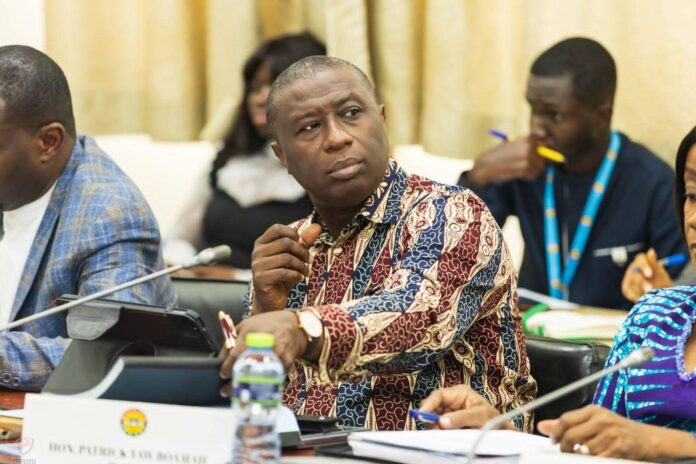Member of Parliament for Okaikwei Central, Patrick Yaw Boamah, has warned about the far-reaching economic impact of the escalating conflict between Iran and Israel, particularly on developing economies like Ghana.
He stressed the potential ripple effects of the Middle East crisis on global energy markets and Ghana’s economic planning and pointed to the strategic Strait of Hormuz—through which a significant portion of global oil supply is transported—as a key vulnerability.
Addressing the media in Parliament on Tuesday, the lawmaker noted that any disruption in oil flow through this critical corridor could spike crude oil prices, a move that would destabilize Ghana’s fiscal projections and energy import plans.
Also Read: NPP blasts police over stalled Ablekuma North parliamentary results
“If you are a government and you use a certain number or figure as your projection for revenue and there’s been a seven percent increase in world market price of crude, then you must be worried and you must take some steps,” he cautioned.
Boamah acknowledged the humanitarian and security implications of the conflict, referencing Ghana’s diplomatic presence in Tehran and urging proactive measures to ensure the safety of Ghanaian diplomats and residents.
The MP confirmed that the Ministry of Foreign Affairs has directed the closure of Ghana’s embassy in Tehran due to worsening security conditions.
According to him, embassy staff in Tehran have endured extremely difficult conditions in recent days, with limited access to water and unstable telecommunications connectivity.
“They’ve not had water for some days, and some telecommunication connectivity has been fluctuating. For safety reasons, I cannot disclose a lot of things that I know because of the safety of embassy staff. I can tell you that they have written. I’ve seen communications. If I tell you a few things in the communication, somebody may be victimized one way or the other,” he added.
Boamah disclosed that a secure route has been agreed upon to allow Ghanaian diplomats to safely exit Tehran and seek refuge in a neighboring country. He refrained from giving details for security reasons.
“So they have agreed to use a certain route because of security. I’m not going to tell you to disclose that to get out of Tehran into a neighboring country to take shelter there,” he stated.
He also expressed concern for the estimated 50 Ghanaian nationals residing in Qom, a religious city in northern Iran, who have so far refused to relocate despite the worsening security situation.
He entreated the Foreign Ministry to do whatever it takes to be in touch with the Ghanaian residents in that part of Iran and ensure their safety at all times.
By Osumanu Al-Hassan/thenewsbulletin24.com


